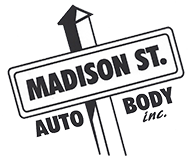|

Preventive MaintenanceCourtesy of the Automotive Service Association According to recent studies, 5 percent of all motor vehicle fatalities are clearly caused by automobile maintenance neglect. The following simple and inexpensive preventive checks will greatly extend the life of the vehicle, ensure safer operation and even benefit the environment. Always consult your owner's manual for individual service schedules because maintenance requirements vary by manufacturer. - Always consult your owner's manual, but a good rule of thumb is to have the oil filter changed regularly - every 3,000 to 4,000 miles.
- Have all fluids checked, including brake, power steering, transmission/transaxle, windshield washer solvent and antifreeze. These fluids play a large role in the safety and performance of the vehicle.
- Check tire inflation. Under-inflated tires can result in a loss of fuel efficiency. This is the least expensive form of preventive and safety maintenance. Tires should be checked once a month.
- Keep your engine tuned. A fouled spark plug or plugged/restricted fuel injector can reduce fuel efficiency by as much as 30 percent.
- Have the chassis lubricated frequently. This step extends the life of the moving components of the vehicle's suspension system.
- Check battery cables and posts for corrosion and clean them as needed. The battery fluid also should be checked and filled if it is low, unless it is a maintenance-free battery.
- Have the lighting system checked frequently, including headlights, turn signals, and brake and taillights.
- Check windshield washer blades for cracks, tears and windshield contact. Replace them at least once a year, or sooner if streaking begins.
- Inspect engine belts regularly. Worn belts will affect the engine performance. Look for cracks and missing sections or segments.
- Have the air filtration system checked frequently. The air filter should be checked every other oil change for clogging or damage. This system ensures that the vehicle is performing at its peak condition.
|


